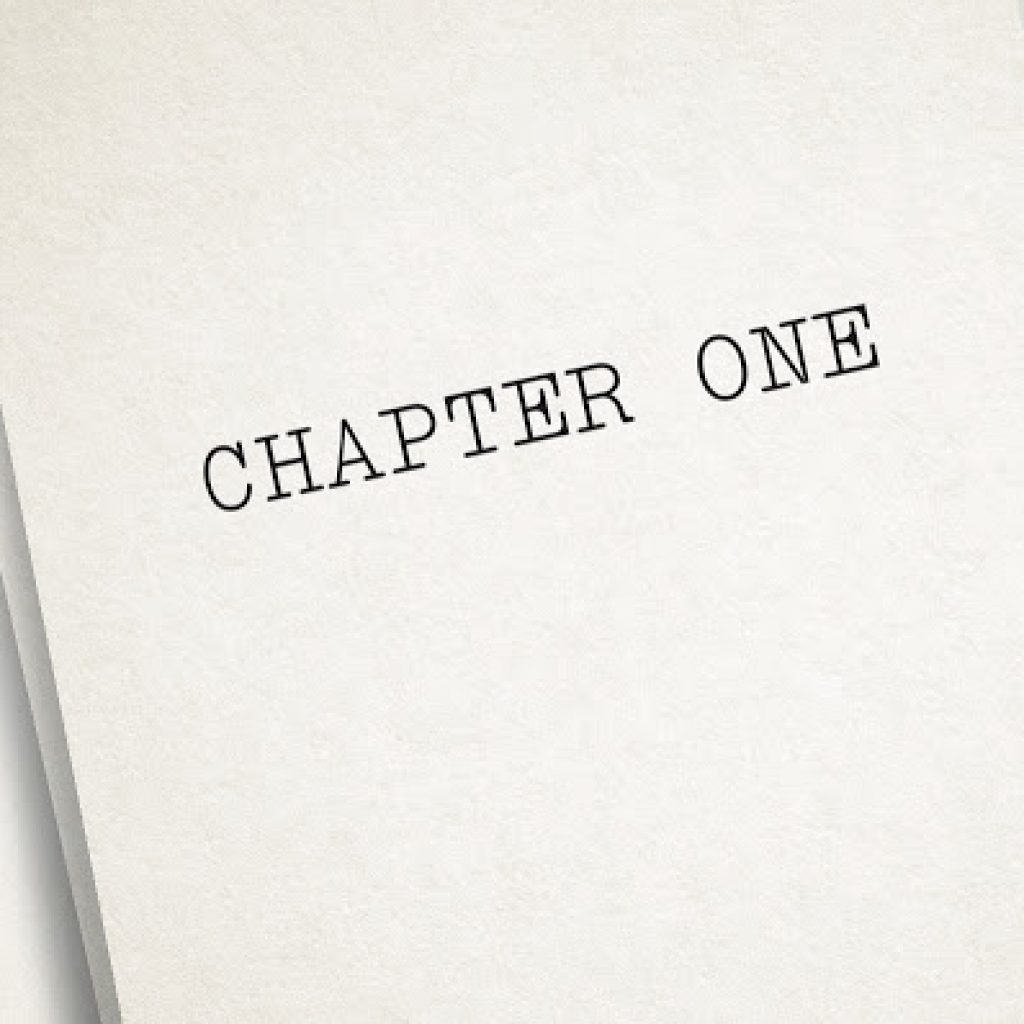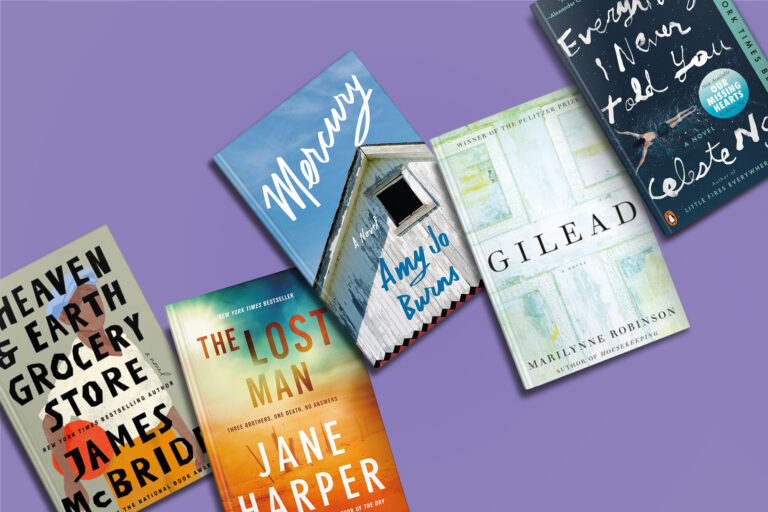November is National Novel Writing Month, challenging would-be novelists to write 50,000 words in 30 days. These authors share what it really took to finish a book—and then get it published!
Whether you’re about to dive head first into the 50,000-word sprint of NaNoWriMo (National Novel Writing Month), you're staring down a blank screen, or walking around with ideas in your head that whisper “write us down,” these writers have been in your shoes.
Novelists Madhuri Pavamani (The Keeper Series, St. Martin’s Press, 2017; The Sanctum Trilogy, Pavamani, 2014), Sari Wilson (Girl Through Glass, Harper, 2016), and Victoria Brown (Minding Ben, Hachette, 2011) talked to Celadon about how they turned an idea into their first book, if writer’s block is real, and of course, the best writing advice they’ve ever received.
Where did you get the idea for your first book and how did you transition into actually writing it?
Madhuri: I’ve always read lots of fantasy and paranormal fiction. It’s my favorite to read and to write. And even though the genre is full of women protagonists saving the day, they usually do so with the assistance of a man. In some way, the man makes them whole. It drives me nuts. And I’m always asking myself Why didn’t she know on her 16th turn around the moon that her powers would manifest? Why did her boyfriend know? or When did he become privy to the kind of magic that makes her the world’s saving grace? So I started keeping a notebook, and filling it with ideas, and names, and family trees, and studies of blades, and somewhere in there, The Sanctum Trilogy came to fruition. Once I convinced myself to start writing it, I couldn’t stop. The words poured out of me. And before I knew it, I had my first 325-page paranormal romance novel.
Sari: I first got the idea for Girl Through Glass when I began writing a scene about some child ballet dancers getting ready for class. This was based on my own memories of dancing at a young age. That whole world came back to me as I was writing about these young girls: a lost world of New York City in the 1970s, of blind pursuit of beauty, of innocence—in essence, of my own childhood. I knew I wanted to sink into this material and to make it a book. The only problem was that I had never written a novel—only a handful of short stories. Filled with self-doubt, I proceeded very slowly: when I finally had 75 pages that I felt good about, I queried a few respected agents. I wanted to gauge whether this material was saleable before I spent years on the project. Of the three agents I queried, all asked to see the whole book. (I was so happy, until it hit me that I still had to write the actual novel!) Then I set about writing the whole book, which took me years. But I felt that the characters and the novel’s milieu had been validated and that helped. I also found a writing partner and we exchanged pages regularly. Through this, I learned that I need to be held accountable toward a production goal: a novel is a muscular form and requires stamina.
Victoria: My migration to America was not without its bumps. I basically told my parents, at sixteen, that I was moving to New York. A kind of hilarious next few years ensued. When writing wouldn’t leave me alone, this story about my arrival and early years in America seemed the most obvious place to begin.
How do you focus when it’s time to put words on the page? Do you have any writing rituals?
Madhuri: Yes. Nothing begins until I have my characters names. I could have worlds built, empires might have already risen and crumbled, my hero might be on her third life, but nothing is put on the page until everyone has a name. And sometimes, that can take a while.
Sari: For me, writing is a physical activity. I feel it in my body—when it is going well and when it is not.
I move so much when I am writing. I pace, I stretch, I do yoga poses. But when I am really going, really in it, I can sit for a long time, which always feels like the greatest physical feat of all.
Victoria: I do. During summers, which is when I have the most time to write, I’ll spend an allotted amount of time goofing off. Before the internet I might have gone for a cup of coffee or called my best friend for a short chat. I then start by rereading what I wrote the day before, allowing myself to make minor tweaks, but not get bogged down in edits. After that, I’m ready to pick up where I left off.
Do you believe in writer’s block? If so, how do you deal with moments of exhaustion or the urge to quit?
Madhuri: I don’t call it writer’s block, but I believe we can have moments in our lives where the words don’t come as easily. I’m living one now. And maybe my body and brain needs a rest, maybe this is the time for me to read more than write, I don’t know. What I do know is I’m being gentle with myself about it, and writing when it feels right, with the understanding I’ll get back there soon enough.
Sari: What I suffer from are writer’s blocks. These are times when I can’t seem to move forward in my writing. For me, it usually looks like rewriting the same scene over and over. I throw out what I already have and rewrite. I love rewriting. I can always do that. I could endlessly start from scratch. During the writing of my novel, which took more than 10 years, I had as many as 50 drafts of various parts, all unfinished.
But I’ve come to realize that for me, blocks are part of the writing process. I’ve come to recognize them as challenges, moments of pause-and-reflect, maybe a reassessment. Sometimes a block is a good sign: perhaps a fear manifesting. And the fear could mean that I am onto something important but am just too defended to accept it. So, then I need to figure out a way to incorporate that fear into the work. Another writer once said to me: “the block is the material” and that resonated with me. So in the end a block—that is, a resistance—is just that. It’s a “stop and look around.” It’s not a dead end.
Victoria: I don’t quite believe in writer’s block, but I do believe you can stall in the middle of a piece and find it hard to move forward. I’ve found putting that piece away for a while and turning to another story or essay usually gets me going again (with the additional benefit of having made progress on another piece of writing). This summer I hit a wall on my novel-in-progress, but my brain was set in writing mode. I pulled out a story I’d started maybe two years earlier and finished it in a week. After that, I returned to the novel and was able to write pass the place I’d been stuck.
How do you feel about bouncing ideas off other writers? Does it help or confuse your writing process?
Madhuri: I love it! I’ve always done it. The act of writing is solitary in and of itself, so I revel in the aspects of the process that give me a chance to be social and around people I love and admire.
Sari: It’s complicated! At certain stages of the writing process, bouncing ideas off other writers can be really helpful, but at other stages it would be the death of a project: there’s a period during which a piece needs to be protected and nurtured--held close--before it is ready to be shared with others.
Victoria: I won’t discuss my ideas in any specificity before I’ve written something down. An idea is too ephemeral before you capture it in words to try and explain it to anyone else, even another writer. I’ll talk about the writing process, but not a specific project.
If you could do one thing differently with the process of writing (or publishing) your first book, what would it be?
Madhuri: I hired a friend to create my cover art, and design the front and back covers, and I self-published. I wish I sent the manuscript for book one of The Sanctum Trilogy to agents to see if anyone would bite. I was already working on book two, and knew how book three would begin and end. It could have been an easy sell. I just really believed no one would be interested in a brown woman angel-demon warrior and her diverse cast of counterparts. It’s a mistake I’ll always regret.
Sari: If there’s anything I would have done differently, it was in the early stages of writing—where I got stuck in trying to make sentences perfect, and very involved with the aesthetics of the language—only to have to discard those sentences during editing. Capote’s dictum about having to “kill your darlings” resonates and it was even more painful. I don’t want those darlings to be so darling.
Victoria: Insist on the cover I want.
What’s your best advice for first-time authors who are looking for an agent?
Madhuri: Do not be deterred. Write a great novel, then turn around and write an even better query letter. And for god’s sake, read the submission guidelines. Agents and their agencies draft those guidelines for a reason.
Sari: Look in the acknowledgments of the books you love and note which agents are mentioned. You can get a sense of an agent’s lists and aesthetics that way. Consider who might have a vision for your work and what you are trying to do with it. Who might represent it well? And once you have a list of five or six agents then research how these agents like to be queried. Some agents accept email queries —others only snail mail. Then write an amazing cover letter—one in which you give it all for your pitch for your work. Consider explaining why you are querying this agent. What do you love about his or her list? All of the details matter when it comes to finding an agent. And then, when you get a positive response, don’t be afraid to have a conversation with the agent about your work to see if your visions are aligned. It’s so important to feel that your agent represents you and your work in a way you are comfortable with and energized by.
Victoria: Query as many agents as you have the time and patience to approach while making sure you’re targeting the ones who have represented work you like or think your writing is similar to. Don’t be afraid of the slush pile. Agents make their money by representing writers; they need writers.
How many unfinished or abandoned books or stories have you written? How do you feel about them, and do you have any plans to revisit them?
Madhuri: Too many to count! They’re all well-organized in various folders on my laptop, some of them promising, others cringe-worthy, all of them undeleted. It’s the writer in me—or perhaps the packrat—but I can’t toss any of my words. And yes, a few of them are definitely being revisited once I finish my current project.
Sari: I have many abandoned short stories—folders and folders of them. Some of these stories made their way into Girl Through Glass. Short stories are like sketches for me, sketches of characters or settings or interior states. It’s hard for me to sustain interest in finishing a short story, though, when the lure of a novel is so great. I love that a novel requires complete absorption in another world. It’s hard for me to dip in and out of the world of short stories—I just want to keep going and going.
Victoria: In my mind I’m on my fourth book; in reality I’m still working on my second. There are so many ideas churning in my brain all the time. I’ve set out drafts for quite a few of the shorter pieces, but the books are neatly gestating in line for their time to come.
What’s the best writing advice you ever received, and who delivered it?
Madhuri: “One day you’ll write the great American novel, just not in my legal writing course.” -- Professor Ann McGinley, Brooklyn Law School, 1995
Sari: When I was a Stegner Fellow at Stanford, the short story writer Grace Paley came to give a talk and she sat in front of us and said, “Just keep writing.” At the time I was still starting out even though it felt like I had been writing a long time. I thought this was silly advice, but when the urge to give up became overpowering, I would remember Paley’s advice and the simplicity of it would help. In the end, it has helped me understand that publishing isn’t some event I was working toward, but a process.
Victoria: It’s so simple: Peter Carey’s oft repeated “good writing is rewriting.” He wasn't the first to say it, but it’s golden advice for the writing process. No one, but no one, gets it right the first, second, or even third time. Just keep at it, until what’s on the page sounds like what’s in your head. [/vc_column_text][/vc_column][/vc_row]



